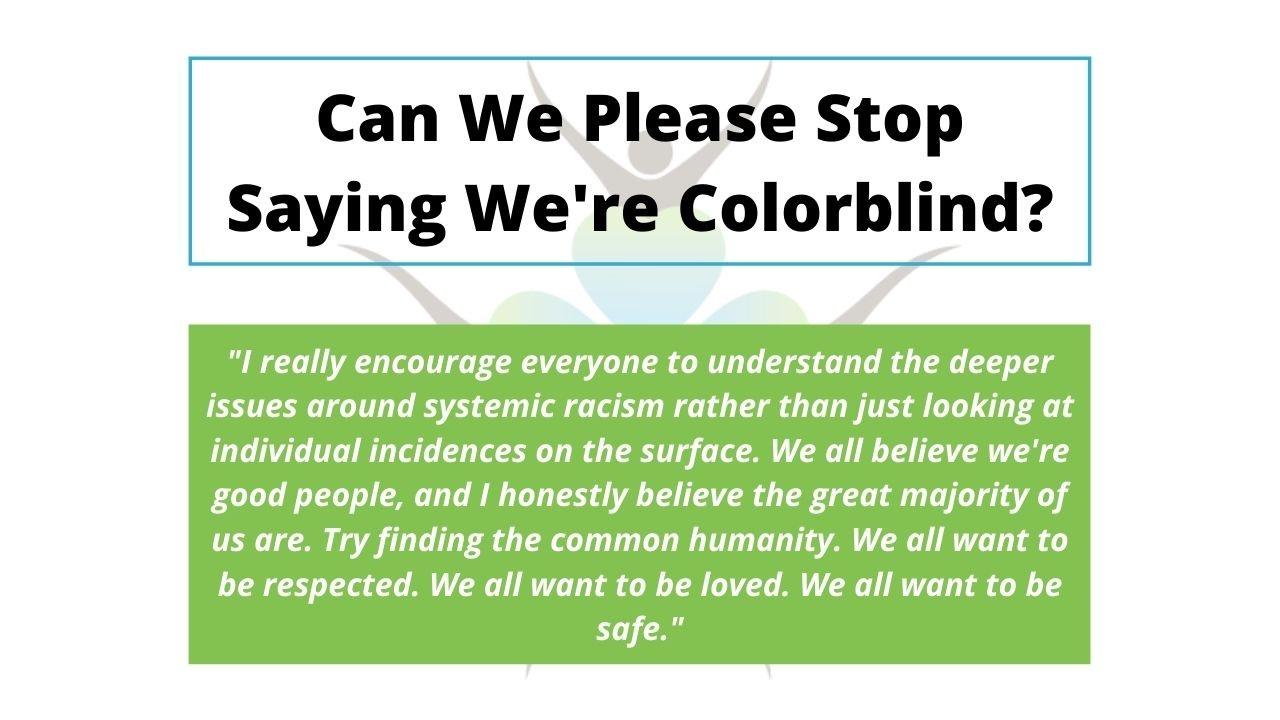
Can We Please Stop Saying We're Colorblind?
Apr 18, 2017
(Click here for the FB Live post I did on this topic)
I see a lot of differences in social media posts between my White friends and my Black friends regarding the racial tensions in the United States. Sadly, I'm not surprised. There seems to be a chasm in understanding that some of my White friends just can't seem to cross. I hope, maybe, I can help.
To say that we "don't see color" is the biggest piece of politically correct baloney that ever existed. There are differences in skin color, and people are treated differently because of it. If you say you don't see it or that it doesn't matter, you're sticking your head in the ground and perpetuating the problem. Our brains work to capture and categorize all of the information in our interactions. A person's color is just one piece that gets captured. We may say we don't see a person's color, but our brains do.
Moreover, if you don't think color matters, then you've probably never been targeted because of the color of your skin. When White people change Black Lives Matter to All Lives Matter, when they concentrate more on the rioting that goes on after an incident than the fact that there may have been excessive force used and a person is dead, that's a problem. When a jury of 12 White people find in favor of a White police officer, is it a surprise? Not really. Does it excuse the rioting? No. But just saying the jury did it's job and we have to accept it is choosing to ignore bigger issues. Rather than judging, ask questions. Why is this happening? (It's happened in more than just one case.) How do we prevent it in the future? (And by "it," I mean the whole situation.)
Colorblindness is why we have the system we do.
- When we're colorblind, we believe justice serves everyone. When we see color, we understand that it does not.
- When we're colorblind, we believe everyone is treated the same. When we see color, we see that everyone is not.
- When we're colorblind, we believe that everyone has the same opportunities in life. When we see color, we understand that some people may not have access to certain opportunities, or if they do, they may have to work harder for the same opportunities.
I really encourage everyone to understand the deeper issues around systemic racism rather than just looking at individual incidences on the surface. We all believe we're good people, and I honestly believe the great majority of us are. Try finding the common humanity. We all want to be respected. We all want to be loved. We all want to be safe.
Then, start seeing color and ask yourself, "Are we all respected? Are we all loved? Are we all safe?"
I think you might be surprised at the answers.
(If you're still not convinced that color - or any other difference - matters, try a few tests from Project Implicit. I guarantee you'll be surprised at your results.)
© 2017, Susan McCuistion


